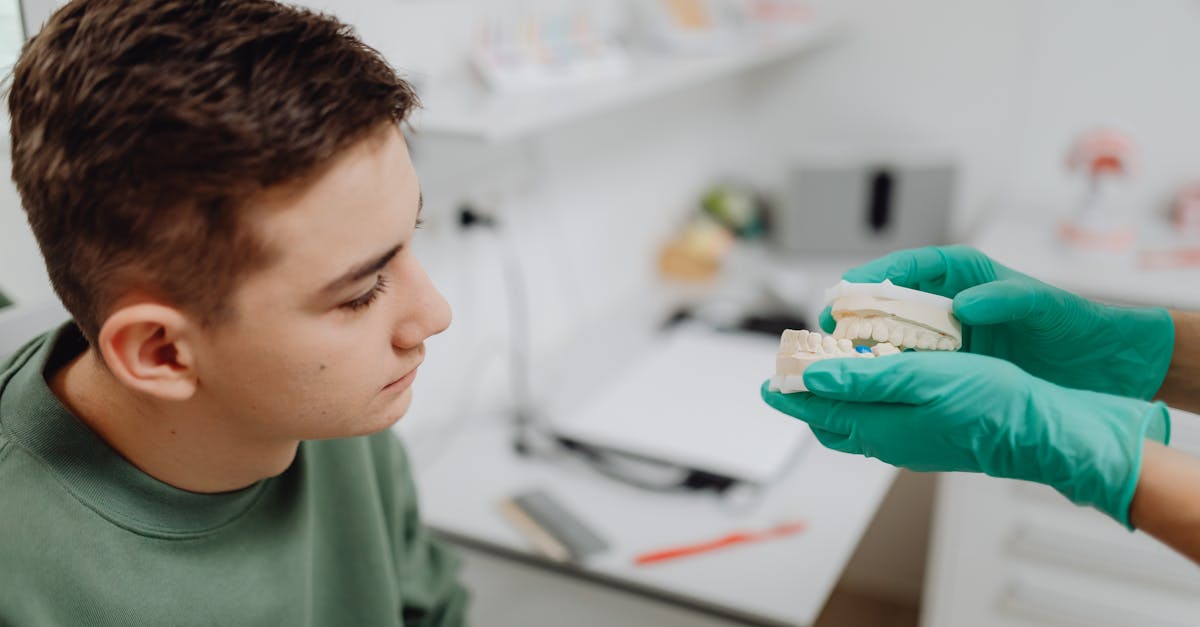The Benefits of Regular Dental Cleanings

Table Of Contents
Increased Confidence
Regular dental cleanings can significantly boost an individual's confidence. The reassurance that comes from knowing one’s teeth are clean and healthy can improve self-esteem. Many people feel more comfortable smiling and engaging in conversations after a visit to the dentist. Fresh breath and a polished appearance may encourage social interactions that were previously avoided.
The visual impact of a cleaner mouth often leaves a lasting impression. Those who maintain a routine of dental cleanings often notice a brighter, more attractive smile. This enhancement can open up new opportunities in both personal and professional spheres. Elevated confidence levels can inspire individuals to showcase their smiles, leading to a positive feedback loop that further reinforces their self-assurance.
A Brighter Smile
Maintaining a bright and healthy smile often starts with regular dental cleanings. These professional cleanings remove tartar and plaque build-up that brushing cannot eliminate. The process not only results in a cleaner mouth but also enhances the overall appearance of teeth, making them look brighter and more radiant. Without these cleanings, stains from food, drinks, and tobacco can accumulate, leading to discolouration and an unhealthy look.
Additionally, dental cleanings provide an opportunity for superficial whitening effects. While they are not the same as professional whitening treatments, the removal of surface stains can noticeably improve the shade of your teeth. Many individuals notice a significant difference immediately after their appointment. A brighter smile can contribute to enhanced self-esteem and encourage you to smile more often, positively influencing both social interactions and personal confidence.
Customised Dental Care Plans
Every individual has unique dental needs. Regular visits to the dentist allow for the creation of personalised care plans that address specific concerns. These plans consider factors such as age, lifestyle, and existing dental conditions. Tailored strategies ensure that patients receive the most effective preventive care. By focusing on individual requirements, dentists can help optimise oral health outcomes.
Alongside personalised care, professionals provide ongoing evaluations and adjustments to the plans as necessary. As patients progress through their oral health journey, their needs may change. This adaptability ensures that the dental care aligns with any evolving conditions or preferences. Regular assessments make it easier to implement changes that enhance the overall effectiveness of the dental routine.
Tailored Recommendations from Professionals
Dental professionals assess individual oral health needs during routine cleanings. This personalised attention allows for tailored recommendations that can address specific concerns like gum health or tooth sensitivity. Based on their observations, dentists can suggest appropriate dental products, such as specific toothbrushes or toothpaste formulations, that best suit each patient’s unique requirements.
These customised suggestions empower patients to take proactive steps towards maintaining optimal oral health. Regular discussions about diet and habits can further enhance patients' understanding of how lifestyle choices impact their dental wellbeing. By adhering to these expert guidelines, individuals can adopt better practices that contribute to long-term oral health and prevent potential issues down the line.
Education on Oral Hygiene
Regular dental cleanings provide an excellent opportunity for patients to learn about proper oral hygiene techniques. Dental professionals can offer insights into effective brushing and flossing methods tailored to individual needs. Understanding the importance of using the right tools, such as electric toothbrushes or specific types of dental floss, can make a significant difference in maintaining oral health.
Moreover, these visits often include discussions about diet and its impact on teeth. Patients can receive recommendations for foods that promote dental health, as well as advice on limiting harmful snacks and drinks. A comprehensive approach to dental education fosters long-term habits that contribute to healthier teeth and gums, empowering individuals to take charge of their oral care routines.
Tips for Maintaining Healthy Teeth
Maintaining healthy teeth involves a consistent routine that emphasizes both brushing and flossing. It is recommended to brush twice daily with fluoride toothpaste, taking care to cover all surfaces of each tooth. Flossing should be done at least once a day to remove plaque and food particles from between teeth. Using mouthwash can offer additional protection, helping to prevent cavities and freshen breath.
Diet plays a crucial role in oral health as well. Limiting sugary snacks and drinks reduces the risk of tooth decay. Incorporating foods rich in calcium, such as dairy products, leafy greens, and nuts, strengthens tooth enamel. Regularly visiting a dentist for check-ups ensures any issues are identified and addressed promptly, contributing to long-term dental health.
FAQS
How often should I get a dental cleaning?
It is generally recommended to have a dental cleaning every six months; however, your dentist may suggest more frequent visits based on your individual oral health needs.
Will dental cleanings hurt?
Most people experience minimal discomfort during dental cleanings. Dental professionals take measures to ensure your comfort, and the benefits of cleaning usually outweigh any temporary discomfort.
What happens during a dental cleaning?
During a dental cleaning, a dental hygienist will remove plaque and tartar buildup, polish your teeth, and may also provide fluoride treatment. They will also check for any signs of gum disease or cavities.
Can regular dental cleanings help with bad breath?
Yes, regular dental cleanings can help eliminate bacteria and tartar that contribute to bad breath. Maintaining good oral hygiene practices along with cleanings can significantly improve your breath.
Are dental cleanings covered by health insurance?
Many health insurance plans cover dental cleanings as part of preventive care. It’s best to check with your insurance provider to understand your specific coverage and any associated costs.
Related Links
Understanding the Connection Between Oral Health and Overall WellnessFlossing 101: Techniques for Effective Cleaning
Creating a Sustainable Oral Care Routine
The Impact of Sugar on Your Oral Health
Natural Remedies to Enhance Oral Hygiene
The Importance of Tongue Cleaning for Fresh Breath
How to Choose the Right Toothbrush and Toothpaste
The Role of Mouthwash in Oral Hygiene